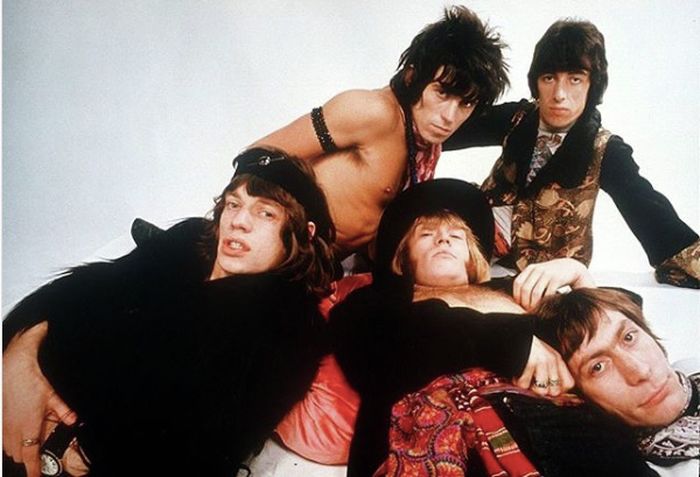Perfume Genius and Moses Sumney: Investigations into desire and longing
Tiffany Tsoi explores how Perfume Genius and Moses Sumney portray intimacy, love, and the self through their music

Desire, be it romantic, sexual, intellectual, or material, is always personal, but never truly individual. Longing is perhaps at the very core of being human – a voracious force that drives us to create, to struggle, to persevere, and also sometimes to self-destruct. Recently, two artists, Perfume Genius and Moses Sumney, both incidentally released albums on the same day, delving into the intricacy and turbulence of queer desire. Sprawling but never wandering, Mike Hadreas (Perfume Genius) and Sumney are ceaselessly perceptive as they examine their personhood under laser focus.
There are striking similarities between the two artists and their careers. Both have offered personal and complex perspectives on a fraught relationship between love and the self. Sumney’s debut album, Aromanticism, sought to “interrogate the idea that romance is normative and necessary”. When Hadreas put out his first record at 28, he had lived a full life, and it chronicled his struggles with acceptance, suicide, drugs, and the artifice of his identity. Now, with Hadreas’ fifth studio album, Set My Heart On Fire Immediately, and Sumney’s second, grae, the two men transcend strictures of genre and style. Sweeping from deep, earthy vocals to androgynous and ethereal falsettos, they lay bare the angst of their yearning, rich in its highs and lows. Hadreas and Sumney reckon with their objects of desire, and the result is a magnum opus of sonic emotion.
"Hadreas and Sumney refuse to be defined, whether it be by the edifice of societal norms or their own previous ruminations"
In ‘On the Floor’, set against funky swathes of guitar and bass reminiscent of 80s R&B, Hadreas sings from a state of frenzied torment: “How long until this heart isn’t mine / I just want him in my arms”. It’s a song which dives deep into the delusion that comes hand in hand with wanting – as he puts it, “that maddening, solitary part of desire”, confronting “a real warmth and belief that you have something crucial to share with each other.” But if Mike seeks outward validation and acceptance, to give his heart away, Sumney is infinitely more critical and self-interrogating. Within ‘Bystanders’ is Moses’ scornful response to such unfettered longing: “But you’ll bleed and all / For a lukewarm embrace”. Yet even he fails to embrace solitude so wholeheartedly. The sorrow is unmistakable in ‘Me in 20 Years’, a soulful piano dirge decorated by glittering synths, wherein Moses ponders whether he is fated “to be braced in endless January”, to “sleep at night with a cavity right by my side”. Perhaps it’s just a moment of weakness, but the song leaves one wondering whether the need for companionship is simply innate and unshakeable.
Mike Hadreas has been vocal about his battle with Crohn’s disease, both in his music, and more candidly. That our bodies may fail us has become a prominent theme throughout his work; his past writing depicts a relationship between mind and body that is at once punishing and loving. “I wear my body like a rotted peach—you can have it if you can handle the stink”, he sings in ‘My Body’ from 2014. On 2017’s album, No Shape, Hadreas paints death not as a macabre ending but rather an emancipation from our corporeal shells. Still, in his new album, Mike doesn’t deny the profound role that the body plays in physical desire. There is newfound ownership, a marked reclamation, of a cage he once shunned. “Your body changes everything / you are anchoring / until you fit beneath me”, he sings in ‘Your Body Changes Everything’. His voice sinks to an assertive baritone, layered over a dark and relentless drumbeat. It’s the most masculine song on the album, evoking the carnalism of his desire.
Similarly, despite his previous reservations, Sumney surrenders to the tactile and transformational nature of romance towards the end of his album, in ‘Bless Me’ – ”A body on top of me / to teach me”. Sweet and devotional, it’s a far cry from the cynicism and disenchantment that characterises most of Sumney’s earlier tracks. Clearly love and longing don’t elude Moses entirely, as much as he may want it to. He finds himself in the throes of the very romantic anguish that he has rejected. “If I split my body into two men / Would you then love me better?” His vocals overlap in rich harmony over a simple finger picked acoustic melody in ‘Polly’, racked with the insecurity and desperation of an unrequited romance. It’s a flagrant contradiction to what he eschewed in ‘Bystanders’, but no less sincere or powerful.
This back and forth, conflict and compromise, a constant reshuffling of ideas – so elemental to the human experience –lies at the heart of Set My Heart On Fire Immediately and grae. Hadreas and Sumney refuse to be defined, whether it be by the edifice of societal norms or their own previous ruminations. And so Moses attests, in ‘also also also and and and’, “I insist upon my right to be multiple / Even more so, I insist upon the recognition of my multiplicity /...and anyone wishing to meaningfully engage with me or my work must be too”. Hadreas’ cinematic album opener, ‘Whole Life’, laments the passing of time, over a backdrop of dreamy arpeggios - “Half of my life is done.” And, like a man who has made peace with himself and his growth, he sings, his voice soaring: “Let it drift and wash away / shadows soften toward some tender light / in slow motion, I leave them behind”. Mike Hadreas and Moses Sumney are boundless. Transfigured, they come out on the other end, warmer, lighter, heavier, all at once. Still a little blurred around the edges, but in slightly sharper focus.
 Features / Should I stay or should I go? Cambridge students and alumni reflect on how their memories stay with them15 December 2025
Features / Should I stay or should I go? Cambridge students and alumni reflect on how their memories stay with them15 December 2025 News / Cambridge study finds students learn better with notes than AI13 December 2025
News / Cambridge study finds students learn better with notes than AI13 December 2025 News / Uni Scout and Guide Club affirms trans inclusion 12 December 2025
News / Uni Scout and Guide Club affirms trans inclusion 12 December 2025 Comment / The magic of an eight-week term15 December 2025
Comment / The magic of an eight-week term15 December 2025 News / News In Brief: Michaelmas marriages, monogamous mammals, and messaging manipulation15 December 2025
News / News In Brief: Michaelmas marriages, monogamous mammals, and messaging manipulation15 December 2025










